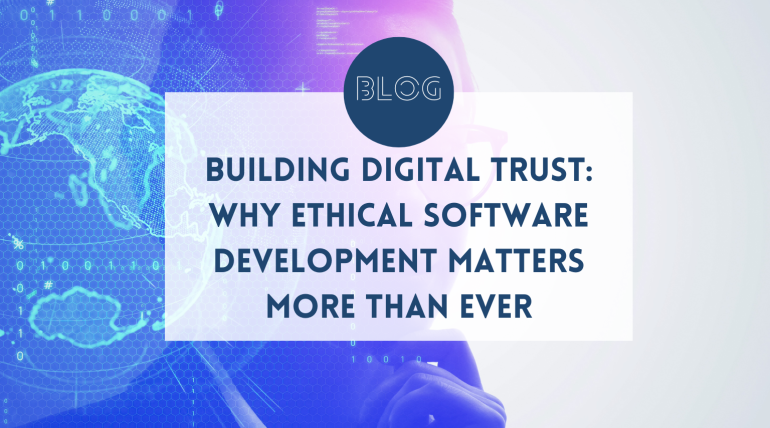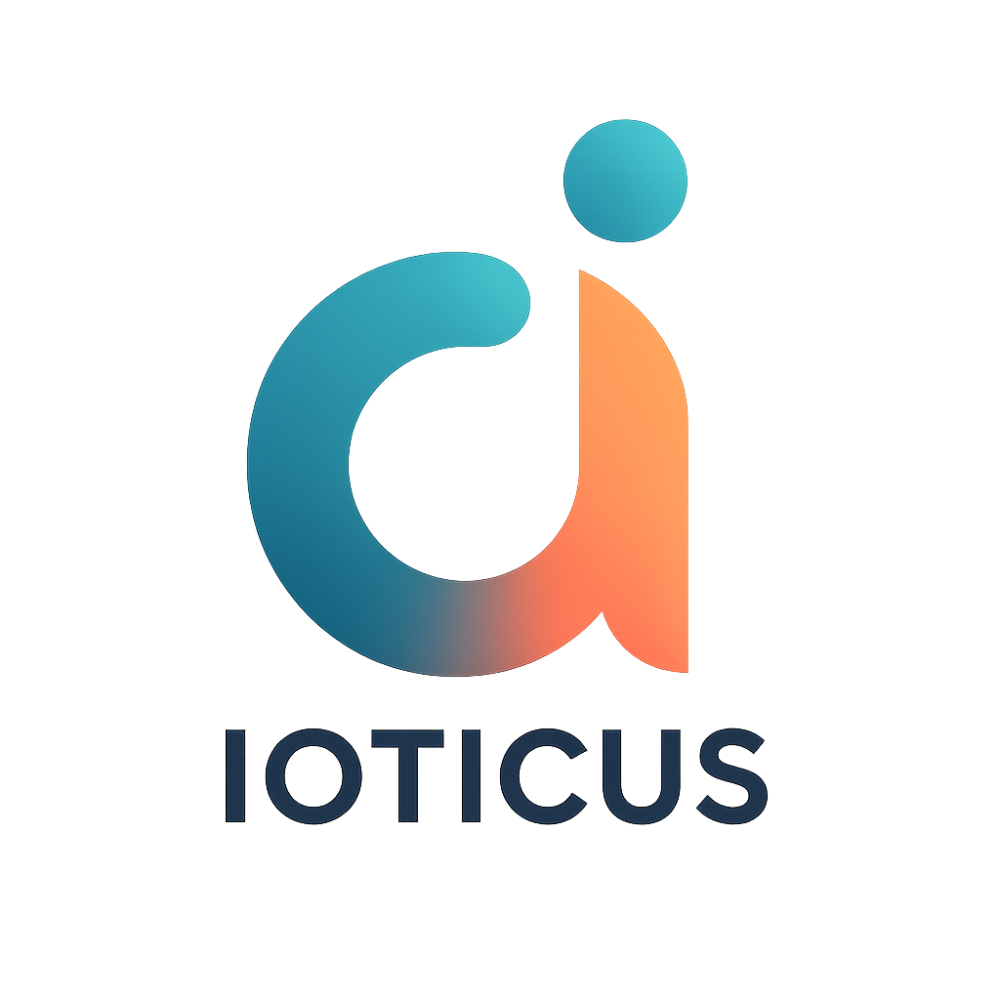
What is the Definition of Ethical Software Development?
Ethical software development means building software responsibly, with fairness, honesty, and respect for users and society. It is not just about writing clean code or delivering features on time. Instead, it includes making decisions that consider the well-being of users, privacy protection, data security, inclusivity, and long-term impact on society.
This approach involves following ethical principles such as transparency, accountability, and integrity throughout the software development life cycle. It means asking important questions like:
- Will this software respect user privacy?
- Is it accessible to people with disabilities?
- Are we being honest about what the software does and how it collects data?
Ethical developers avoid shortcuts that may harm users in the long run, even if they bring short-term gains. Their goal is to create trustworthy, secure, and inclusive digital solutions.
Why is Trust Important in Software Development?
Trust is the foundation of every successful software project. Whether it’s a mobile app, a website, or an enterprise platform, users need to trust that the software will:
- Work reliably and safely
- Protect their personal data
- Respect their time and choices
Without trust, users may uninstall the app, leave negative reviews, or simply avoid using the product. Worse, a loss of trust can damage a company’s reputation and lead to legal or financial problems.
Trust matters not only between users and the software, but also between clients and developers. Clients need to feel confident that the software development team will:
- Deliver the promised features
- Communicate openly about progress and delays
- Handle sensitive information responsibly
Building trust takes time, but it’s a powerful asset that leads to long-term customer loyalty, repeat business, and positive word-of-mouth.
Key Aspects of Ethical Software Development
Let’s explore the key components that make a software project ethically strong:
1. Transparency
Transparency means being honest and open throughout the development process. Ethical developers share timelines, budgets, feature updates, and even potential risks with clients. They don’t hide costs or deliver unfinished work without disclosure.
Transparency builds trust and reduces misunderstandings. It helps clients make informed decisions and encourages users to feel safe using the software.
2. Privacy and Data Protection
Data privacy is a major ethical concern today. Users entrust their information—names, emails, preferences, sometimes even financial or medical data—to software platforms. Developers must ensure this data is:
- Collected lawfully
- Stored securely
- Used only for its intended purpose
Privacy-by-design is a best practice. It means privacy is considered from the first step of development, not added later as an afterthought.
3. Security
Security is about protecting systems and user data from threats like hacking, data leaks, or unauthorized access. Ethical development involves writing secure code, regularly updating software, and running vulnerability tests.
Even a single security flaw can harm thousands of users. Ethical developers are proactive, not reactive, when it comes to cyber safety.
4. Accessibility and Inclusivity
Ethical software is for everyone, not just the majority. It must be usable by people with disabilities and accessible across devices, regions, and bandwidth levels.
Inclusive design considers:
- Visual impairments (color contrast, screen reader compatibility)
- Physical limitations (keyboard navigation)
- Language and cultural diversity
An ethical team strives to eliminate digital barriers and welcome all users.
5. Responsible Use of AI and Automation
AI can bring great benefits but also serious risks—like bias, job displacement, and loss of transparency. Ethical developers ensure that AI models are trained on fair, unbiased data and offer human oversight where needed.
They also provide users with clear explanations of how AI decisions are made, especially in sensitive areas like finance, hiring, or healthcare.
6. Accountability
When mistakes happen, ethical developers take responsibility. They don’t blame users or cover up bugs. Instead, they fix issues quickly, apologize if needed, and learn from them.
Accountability strengthens relationships with clients and users alike. It shows integrity and professionalism.
Prioritizing People-Centric Development to Drive Real Value
Ethical software development puts people first. It goes beyond features and functions to consider:
- What problems are we solving?
- Who benefits from this solution?
- How does it affect the daily lives of users?
This people-first mindset leads to higher adoption rates, better engagement, and longer product lifespans. Let’s look at how people-centric development creates real value:
1. Better User Experience (UX)
When developers focus on the user’s journey, they design interfaces that are clear, intuitive, and pleasant to use. Ethical software avoids dark patterns—manipulative design tricks that push users into unwanted actions.
Instead, it encourages consent, clarity, and ease of navigation.
2. Increased Customer Loyalty
People remember how a product made them feel. Ethical software that protects user rights, communicates transparently, and delivers value builds lasting emotional connections.
Satisfied users are more likely to:
- Recommend the product
- Stay loyal over time
- Forgive minor issues when they arise
3. Greater Innovation
Ethical development creates space for creativity. Teams that care about values tend to experiment with new ideas, diverse approaches, and emerging technologies—all while maintaining user trust.
Innovation thrives in environments where integrity and purpose are part of the mission.
4. Stronger Brand Reputation
Brands that uphold ethical values stand out in a crowded market. Whether it’s in app stores, online reviews, or media coverage, ethical companies earn recognition as trustworthy leaders.
Customers are drawn to brands that take a stand for good.
Challenges and Opportunities
Challenges
Despite its benefits, ethical software development comes with challenges:
- Budget constraints: Ethics may sometimes increase costs (e.g., accessibility testing, secure hosting).
- Tight deadlines: Developers may be pressured to skip steps for faster delivery.
- Lack of awareness: Not all team members may understand ethical guidelines.
- Changing technologies: New tools and platforms bring new ethical dilemmas (e.g., generative AI).
Opportunities
However, these challenges also present growth opportunities:
- Ethics as a unique selling point (USP): Companies can market their ethical practices to attract like-minded clients.
- Stronger teams: Ethical environments tend to attract motivated, purpose-driven talent.
- Long-term savings: Ethical decisions today reduce risks like lawsuits or data breaches tomorrow.
- Better client relationships: Openness and honesty foster collaboration and mutual respect.
The companies that succeed in the future will be those that embrace ethics as part of their identity, not just as a checkbox.
Conclusion: How IOTICUS Helps You Build Trust Through Ethical AI
At IOTICUS SOFTWARE CONSULTANCY PVT. LTD., we believe ethical software is the foundation of every successful business in the digital age. Our team blends over 20 years of industry experience with powerful AI-driven solutions to help you build software that’s not only smart, but also trustworthy.
We specialize in:
- Ethical AI design and automation
- Secure and privacy-first custom software
- Transparent backend systems
- People-first user experiences
Our approach is simple: we don’t just build software, we build partnerships. Whether you’re a law firm seeking automation, a startup in need of scalable architecture, or an enterprise managing complex backend systems, we offer future-ready solutions rooted in integrity.
Ready to build software your users can trust? Let’s create something remarkable together. Click here.


